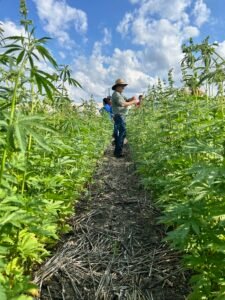iHemp NSW Privacy Policy
IHemp NSW is committed to promoting the hemp industry in New South Wales by providing support and networking for hemp growers, hemp processors and other interested parties. We respect your privacy and this policy outlines our ongoing obligations to you in respect of how we manage your Personal Information.
We have adopted the Australian Privacy Principles (APPs) contained in the Privacy Act 1988 (Cth) (the Privacy Act). The NPPs govern the way in which we collect, use, disclose, store, secure and dispose of your Personal Information.
A copy of the Australian Privacy Principles may be obtained from the website of The Office of the Australian Information Commissioner at www.oaic.gov.au
What is Personal Information and why do we collect it?
Personal Information is information or an opinion that identifies an individual. Examples of Personal Information we collect include: names, addresses, email addresses, phone and facsimile numbers.
This Personal Information is obtained in many ways including correspondence, by telephone and facsimile, by email, via our website, from your website, from media and publications, from other publicly available sources and from website cookies. We cannot guarantee website links or policy of authorised third parties.
We collect your Personal Information for the primary purpose of providing our services to you or where you have agreed sharing it with other parties. We may also use your Personal Information for secondary purposes closely related to the primary purpose, in circumstances where you would reasonably expect such use or disclosure. You may unsubscribe from our mailing lists at any time by selecting “unsubscribe” or you may request that we remove any website correspondence collected via our Contact form.
When we collect Personal Information we will, where appropriate and where possible, explain to you why we are collecting the information and how we plan to use it.
Third Parties
Where reasonable and practicable to do so, we will collect your Personal Information only from you. However, in some circumstances we may be provided with information by third parties. In such a case we will take reasonable steps to ensure that you are made aware of the information provided to us by the third party.
Disclosure of Personal Information
Your Personal Information may be disclosed in a number of circumstances including the following:
- Third parties where you consent to the use or disclosure; and
- Where required or authorised by law.
Security of Personal Information
Your Personal Information is stored in a manner that reasonably protects it from misuse and loss and from unauthorized access, modification or disclosure.
When your Personal Information is no longer needed for the purpose for which it was obtained, we will take reasonable steps to destroy or permanently de-identify your Personal Information. However, some Personal Information may be stored in client files which will be kept by us for a minimum of 7 years.
Access to your Personal Information
You may access the Personal Information we hold about you and to update and/or correct it, subject to certain exceptions. If you wish to access your Personal Information, please contact us in writing via email
Maintaining the Quality of your Personal Information
It is an important to us that your Personal Information is up to date. We will take reasonable steps to make sure that your Personal Information is accurate, complete and up-to-date. If you find that the information we have is not up to date or is inaccurate, please advise us as soon as practicable so we can update our records and ensure we can continue to provide quality services to you.
Policy Updates
This Policy may change from time to time and is available on our website.
Privacy Policy Complaints and Enquiries
If you have any queries or complaints about our Privacy Policy please contact us at: info@ihempnsw.org.au

 The response to Senator Richard Colbeck’s call for submissions to the Senate Standing Committees on Rural and Regional Affairs and Transport’s inquiry into the Opportunities for the Development of an Industrial Hemp Industry in Australia was both strong and diverse, with
The response to Senator Richard Colbeck’s call for submissions to the Senate Standing Committees on Rural and Regional Affairs and Transport’s inquiry into the Opportunities for the Development of an Industrial Hemp Industry in Australia was both strong and diverse, with